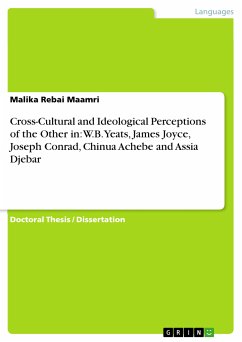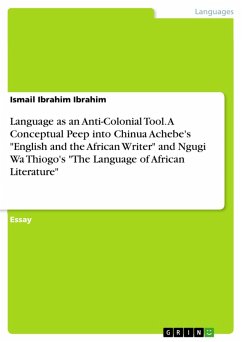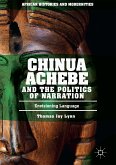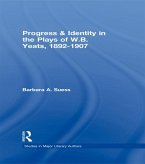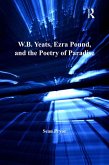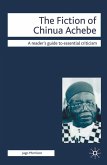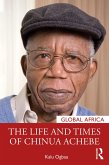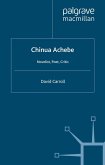Doctoral Thesis / Dissertation from the year 2009 in the subject Literature - Comparative Literature, grade: P.H.D, , language: English, abstract: This doctoral thesis investigates 'Otherness' through works which have thoroughly examined and questioned the creation of a "stable self" by putting it in dialogue with its others and to society as a whole, namely William Butler Yeats's selected poems, James Joyce's Dubliners, (1914) Joseph Conrad's Heart of Darkness, (1899) Chinua Achebe's Things Fall Apart (1958), and Assia Djebar's L'Amour, La Fantasia (1985). By representing the results of English, Belgian and French oppression in tangible material terms as well as its spiritual bankruptcies, these writers mark their works as clearly critical of the colonial regime and opposed to colonial exploitation, positioning themselves as postcolonial through their representations. In this sense, their texts raise issues debated in current postcolonial discussions. Speaking in the voice of the oppressed, in the language of the oppressor, as a weapon to make cultural difference visible, these writers analyse the problem of identity crisis, displacement, disintegration and the effects of colonialism on the culture and psyche of the colonised subject. Despite their differing conceptions of Irishness, both William Butler Yeats and James Joyce repudiated things English and helped to defend their history as well as regain pride in their race. The Other in these writers is presented not in terms of colour but conceived in relation to city/countryside, past/present, and Protestant/Catholic. The theoretical questions that haunted Chinua Achebe's career as a writer were also prompted by the desire to re-orientate cultural discourse and initiate a discourse of resistance. In his commitment to questions relating to identity and the relationship of the individual and history, Achebe like the above-mentioned Irish writers contributed to the analysis of colonisation and the natives' resistance to oppression both at the level of the individual and that of the nation. As another marginalised writer, Joseph Conrad anticipated Yeats's prophecy in his 1921 poem, 'The Second Coming,' several years earlier with the publication of Heart of Darkness. Whereas Yeats saw the spiral shapes of history, Conrad saw the emptiness at the centre of civilisation and the atrocities at the margins. He showed the hollow morality at the centre of the imperialist enterprise, one that could not hold. He too wrote about the paralysis of modern society, the disruption of traditional society under the impact of intruding forces.
Dieser Download kann aus rechtlichen Gründen nur mit Rechnungsadresse in A, B, BG, CY, CZ, D, DK, EW, E, FIN, F, GR, HR, H, IRL, I, LT, L, LR, M, NL, PL, P, R, S, SLO, SK ausgeliefert werden.

